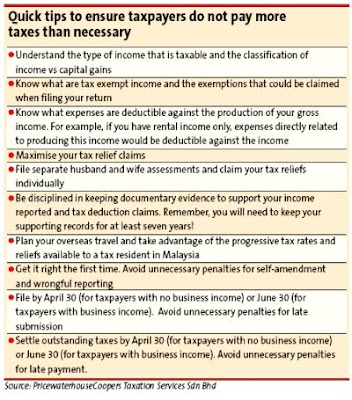You BET! If you are not prepared to reduce or eliminate this risk, you may as well transfer all your assets to the Doctor now cause it will only be a matter of "when", not "if".
ACCORDING to the United Nations’ projections, there will be about 1.2 billion people aged 65 years and above by 2025.
With numbers such as these, failure to address our health needs today could develop into a costly problem tomorrow.
As our affluence swells, our expectations of better healthcare, financial independence and a peaceful death increases.
But due to the high cost of healthcare, only a few can afford to become seriously ill.
While immediate concerns about rising healthcare costs and retirement fund structure require attention, fundamental long-term questions should not be neglected.
There is urgent need to address what will be very expensive demographic shifts within our lifetime.
The biggest risk
Unless you are among the lucky few with lifetime healthcare coverage, you may need to bear major medical expenses during retirement. Should you need assisted living while ageing, you would enter a whole new world of long-term financial pain.
Those who have seen it happen to family members or acquaintances know first-hand that the unpredictability of our personal health is the biggest risk in retirement planning. It is a nightmare that is unforeseen and rarely controllable.
According to the World Economic Forum 2009 report Transforming Pensions and Healthcare in a Rapidly Ageing World, the question of ageing societies from a perspective that integrates implications and solutions for both healthcare and retirement pensions was addressed.
In taking this integrated approach, which emphasised multi-stakeholder collaboration, the World Economic Forum was reacting to rising concern expressed by financial services and healthcare companies, employers, governments and society.
However, no single stakeholder can hope to tackle the challenges or make the most of the abundant opportunities. Success will require diverse, multi-stakeholder collaboration and innovative approaches.
How much is enough?
With the timing of this report, we are presented with a once-in-a-generation opportunity for transformational change in retirement planning for many of us in Malaysia.
There is a need for hybrid solutions to address the increasing cost of medical and healthcare products and services.
After all, illness or sickness can happen to anyone at any time. We can experience possible medical bankruptcy at any age but the worst time to experience it is during old age. Such financial depression could end our life earlier than expected.
The million dollar question: How much is enough when medical costs could be escalating at double-digit inflation rates as we age?
It is almost impossible to calculate as the amount required is subject to unpredictable variables like types of illness, medical fees, medicine costs and more.
Concerted effort from everyone
The ability for Malaysians to ensure financial sufficiency for medical and healthcare during retirement is becoming severely reduced due to skyrocketing medical costs.
A concerted effort from different stakeholders is necessary. An effective collaboration between the Government, insurance companies, pharmaceutical firms, healthcare providers and the community to keep the financial support and aid within affordable limits is required. Initiatives from all stakeholders are also required:
•Individuals should start early with personal savings, contribution to Employees Provident Fund, life and medical insurances and investments for old age care;
•Employers should consider medical benefits for individuals under employment beyond retirement age;
•The Government should provide medical and old age care subsidies and assistance, and tax incentives to make private health and medical care affordable;
•Insurers should provide affordable medical and age care insurance that caters for specific needs and age;
•Price management is required on private health and medical advice, services, and products (food and medicines) to make them affordable; and
•Family and community assistance should focus on the provision of home care, nursing help, food, accommodation and emotional support with love, care and affection.
These ideas and strategies may not be comprehensive. Neither are they overnight solutions. They need adequate research studies and timely and appropriate decision-making processes from relevant parties.
The private sector can still benefit by catering to the needs of the elderly and the Government can facilitate old-age security while helping to overcome financial pressures on private healthcare systems and retirement plans for current and future generations.
In the bigger picture, it can be a collective and meaningful corporate social responsibility effort and initiative to turn a “greying society” into a “silver society”, in which the elderly live their golden age without financial worries associated with ageing and ill health.
















